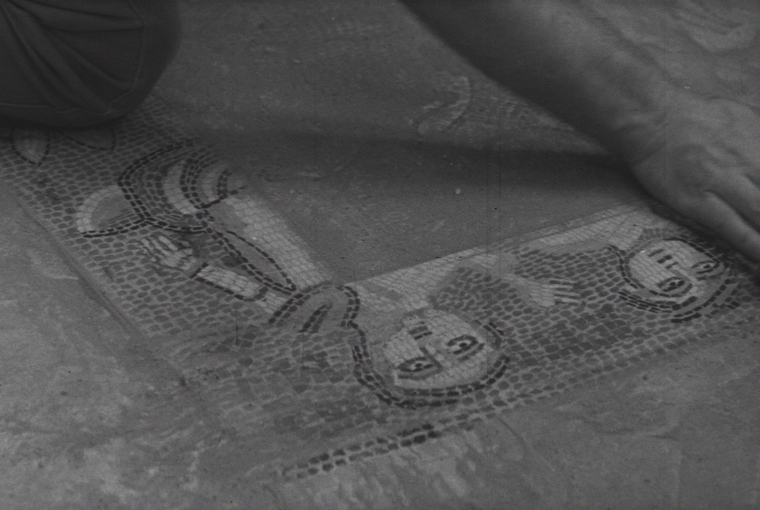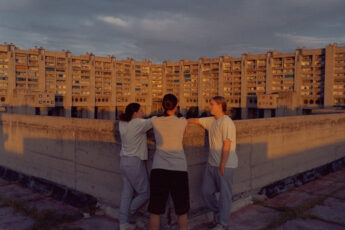
In the past decade, Georgia’s filmmakers have won international acclaim from Berlin to Sundance. These successes were often seeded by the Georgian National Film Center (GNFC), giving many auteurs their start. Today an increasingly authoritarian government has the GNFC in its crosshairs, intent on remolding film culture to its own design. The Ministry of Culture, under minister Thea Tsulukiani, has purged the GNFC’s leadership and installed political loyalists. Georgia’s ruling party says it is “sanitizing” cinema.
Filmmakers resisted. In August 2023, more than 200 industry professionals had signed an open boycott of the “seized” film center after Tsulukiani’s controversial shake-up. They refused to submit projects to what they saw as a co-opted GNFC or serve on its juries. In December 2023, during the Tbilisi International Film Festival, dissident filmmakers unveiled the Georgian Film Institute (GFI), a new, independent film body intended as an alternative. Its president is filmmaker Salomé Alexi, granddaughter of legendary director Nutsa Gogoberidze, a woman who was repressed by Soviet authorities in the 1930s herself. By early 2024 GFI had assembled a catalogue of 54 film projects.
The GFI tapped international support networks that the state now spurns. David Vashadze, executive director of the GFI, said, “We are meeting with all of the A-class film festivals, different funds and institutions, and all of them understand the reality of what’s happening here.” The power struggle over Georgian cinema burst onto the world stage at the 2024 Berlin International Film Festival, where the Berlinale’s European Film Market hosted two Georgian stands side by side. Director Nana Ekvtimishvili, attending the Berlinale, noted “the state’s preference for deceased artists is evident, as they can no longer voice opinions.”
What the battle for Georgia’s cinema shows is the extent to which authoritarianism exposes the state’s grip on cultural production. As Radio Free Europe reports, “the crisis has galvanized the country’s filmmakers” into action and cooperation like never before. Freed from official dictates, they are free to experiment, to be provocateurs without self-censorship. The very creation of the Georgian Film Institute is a testament to this resilience. In its first year, the GFI has managed to put Georgian cinema on the world’s radar in defiance of its own state.
On the other hand, having broken away from state control, Georgia’s independent filmmakers now lean even more on international funding and festival platforms. Western co-producers and film funds come with their own preferences, which can shape creative decisions. As we have noted, European festivals tend to favor Georgian films with certain themes, often social issues or political critiques that resonate with liberal audiences. In fact, much of the so-called Georgian “New Wave” in the 2010s was propelled by films that met Western expectations of gritty post-Soviet reality. Now, with the government clamping down, Georgian directors may feel an even greater incentive to cater to those external tastes to get their projects made and seen. It is hard not to understand the success of Dea Kulumbegashvili’s April (2024) in this light.
It may turn out to be an instance of tragic irony that the GNFC’s attempt to discredit the filmmakers’ rebellion as “politically driven” is true in at least two ways that trap the fight for independent Georgian cinema between Scylla and Charybdis. On the one side, there is a parochial government demanding patriotic fairy tales, on the other a global art market hungry for a particular kind of post-Soviet critique. Of course, an international festival won’t send riot police to your premiere, but it might only bankroll stories that fit a certain narrative of Georgia. In an industry where resources are even more limited than elsewhere, the pressure to please either camp may bring its own constraints, shape creative decisions, and determine the pool of those participating in the battle. What risks being lost is the film neither camp knows how to read.
***
This month, we are publishing our coverage of the Golden Apricot Film Festival in Yerevan (13–20 July). At Golden Apricot, Anna Doyle saw Tamara Stepanyan’s My Armenian Phantoms, at once an homage to Armenia’s cinematic heritage and a reckoning with the director’s own past. In our Interview section, you will find a conversation with Stepanyan about belonging, Armenia’s cinema and her family’s ties to it. Zoe Aiano reviews Arjun Talwar’s Letters from Wolf Street, a subtle reversal of Agnès Varda’s Daguerréotypes through which the Indian director engages Poland, the country he lives in. Isabel Jacobs wrote about Kukla’s Fantasy, in which a charismatic transgender woman disrupts the glum everyday of three girls living in a working-class neighborhood. Finally, Moritz Pfeifer critiques Dužan Duong’s Summer School, 2001, a film recently presented at Karlovy Vary that explores Vietnamese Czech identity in the style and spirit of 2000s hyperlink cinema.
We hope you enjoy our reads.
Konstanty Kuzma & Moritz Pfeifer
Editors
Note: Due to delays in our publication schedule, this issue was published in the month of September 2025.




Leave a Comment